MIT Lesson 26B Kanji: 第26B課の漢字
 Warning! There is Japanese text on this page. If it looks like this:$BI4@i instead of this: "
Warning! There is Japanese text on this page. If it looks like this:$BI4@i instead of this: " ", then read this.
", then read this.
 Each large, brush-stroke image below which shows up as a hypertext link (e.g. has a colored box around it) is a link to an animation of the character being painted with a brush.
Each large, brush-stroke image below which shows up as a hypertext link (e.g. has a colored box around it) is a link to an animation of the character being painted with a brush.
In the following definitions, on (Chinese-based) readings are represented by katakana; kun (native Japanese-based) readings are represented by hiragana. This is a common dictionary convention, and does not have any bearing on meaning.
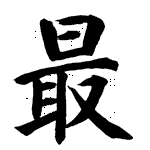
-
Printed form:
- 最
-
Readings:
- サイ
- もっと(も)
-
Meaning:
- the most; ultra
-
Usage Examples:
- 最高のお休み
- 日本で最も長い川
- 最新のDVD
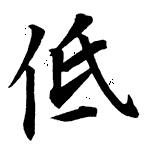
-
Printed form:
- 低
-
Readings:
- テイ
- ひく(い)
-
Meaning:
- low
-
Usage Examples:
- 背が低い
- 最低の気持ち
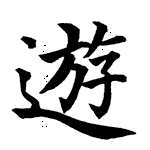
-
Printed form:
- 遊
-
Readings:
- ユウ
- あそ(ぶ)
-
Meaning:
- play
-
Usage Examples:
- 一日中外で遊んだ。
- 遊園地 (ゆうえんち) amusement park
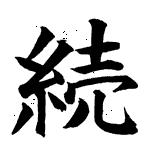
-
Printed form:
- 続
-
Readings:
- ゾク
- つづ(く)
- つづ(き)
-
Meaning:
- continue
-
Usage Examples:
- 試合を続ける。
- この話の続きを見たい。
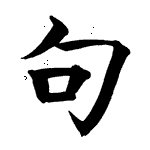
-
Printed form:
- 句
-
Readings:
- ク
-
Meaning:
- phrase
-
Usage Examples:
- 文句を言う
- 俳句 (はいく)
- 句読点 (くとうてん) pucture marks
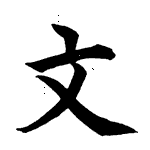
-
Printed form:
- 文
-
Readings:
- ブン、モン
-
Meaning:
- letter; character; literature
-
Usage Examples:
- 文学
- 文化
- 文字 (もじ) letter, character
- 作文 (さくぶん) composition
- 論文 (ろんぶん) thesis
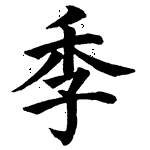
-
Printed form:
- 季
-
Readings:
- キ
-
Meaning:
- season
-
Usage Examples:
- 季節
- 四季 (しき)
- 気候 (きこう) climate
- 雨季 (うき) rainy season
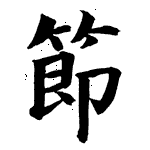
-
Printed form:
- 節
-
Readings:
- セツ、セツ
-
Meaning:
- Period of time; economize
-
Usage Examples:
- お節料理 New Year Food
- お金を節約(する)
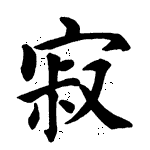
-
Printed form:
- 寂
-
Readings:
- ジャク
- さび(しい)
-
Meaning:
- lonely
-
Usage Examples:
- 寂しくなる
- 寂しい気持ち
- 寂しさが残る
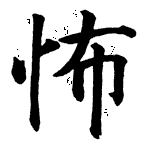
-
Printed form:
- 怖
-
Readings:
- フ
- こわ(い)
-
Meaning:
- scare; horror
-
Usage Examples:
- 怖い話
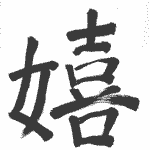
-
Printed form:
- 嬉
-
Readings:
- うれ(しい)
-
Meaning:
- glad
-
Usage Examples:
- 嬉しそうな顔をする
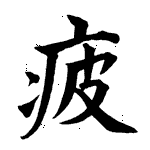
-
Printed form:
- 疲
-
Readings:
- ヒ
- つか(れる)
-
Meaning:
- become tired
-
Usage Examples:
- 仕事で疲れている。
- 目の疲れ
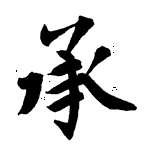
-
Printed form:
- 承
-
Readings:
-
- ショウ
-
Meaning:
- approve
-
Usage Examples:
- 承知しました。
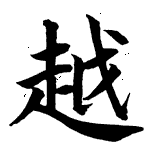
-
Printed form:
- 越
-
Readings:
- エツ
- こ(す)
- こ(える)
-
Meaning:
- go beyond
-
Usage Examples:
- 大きい家に引っ越す
- 引越しを手伝う
- 追い越す (おいこす) outrun, pass
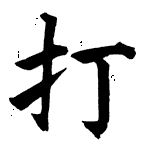
-
Printed form:
- 打
-
Readings:
- タ、ダ
- う(つ)
-
Meaning:
- hit, strike
-
Usage Examples:
- ホームランを打った。
- 打ち合わせ (うちあわせ) preliminary arrangement
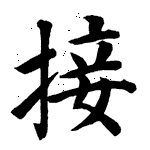
-
Printed form:
- 接
-
Readings:
- セツ
-
Meaning:
- contact
-
Usage Examples:
- 面接 (めんせつ) する
- 直接 (ちょくせつ) 話す talk directly
- 面接試験
 Warning! There is Japanese text on this page. If it looks like this:$BI4@i instead of this: "
Warning! There is Japanese text on this page. If it looks like this:$BI4@i instead of this: " ", then read this.
", then read this. Warning! There is Japanese text on this page. If it looks like this:$BI4@i instead of this: "
Warning! There is Japanese text on this page. If it looks like this:$BI4@i instead of this: " ", then read this.
", then read this. Each large, brush-stroke image below which shows up as a hypertext link (e.g. has a colored box around it) is a link to an animation of the character being painted with a brush.
Each large, brush-stroke image below which shows up as a hypertext link (e.g. has a colored box around it) is a link to an animation of the character being painted with a brush.














